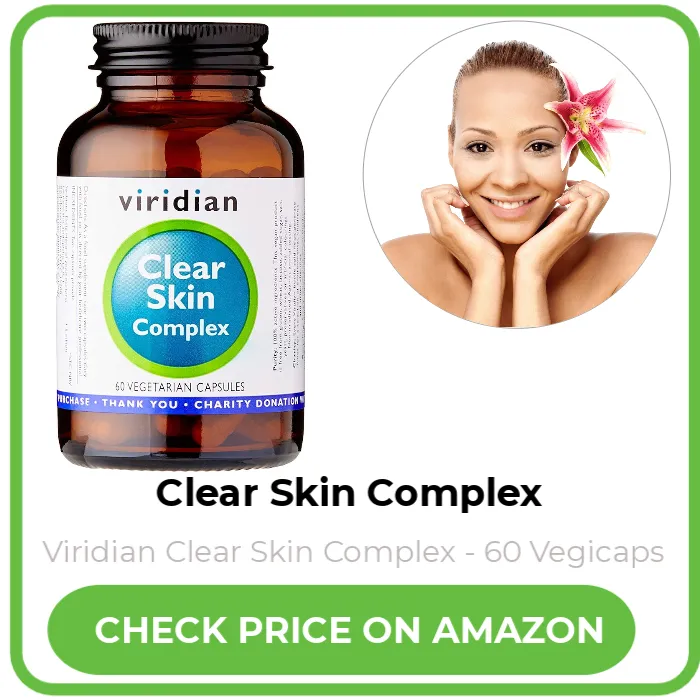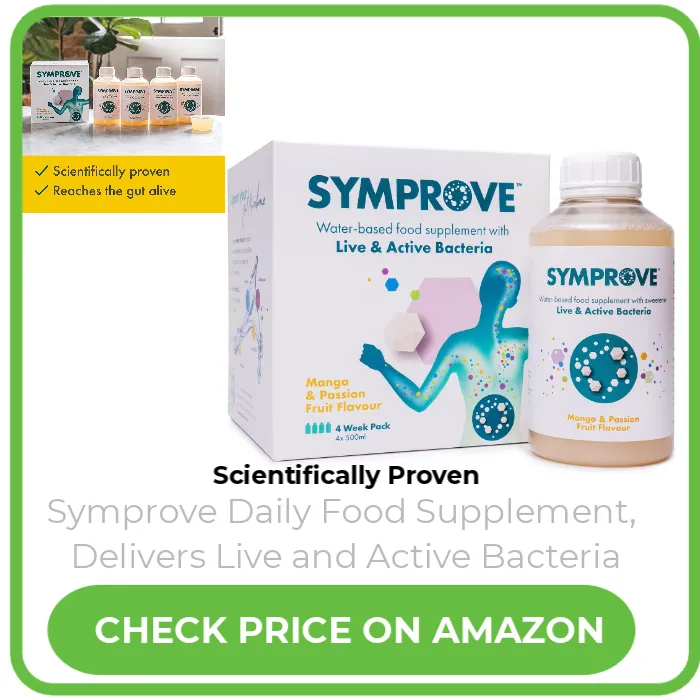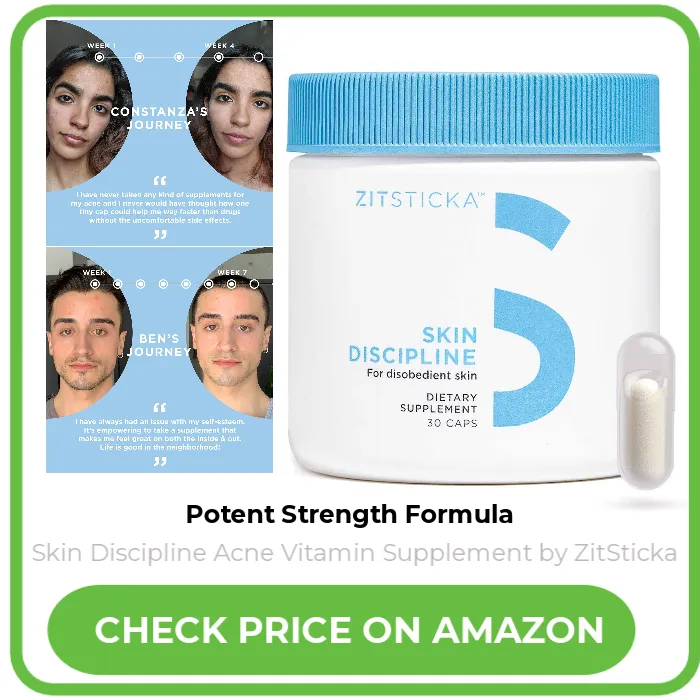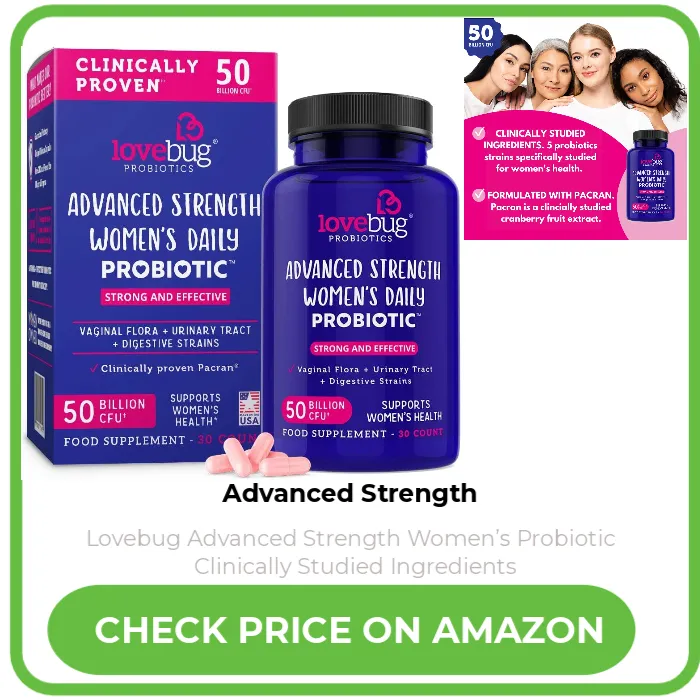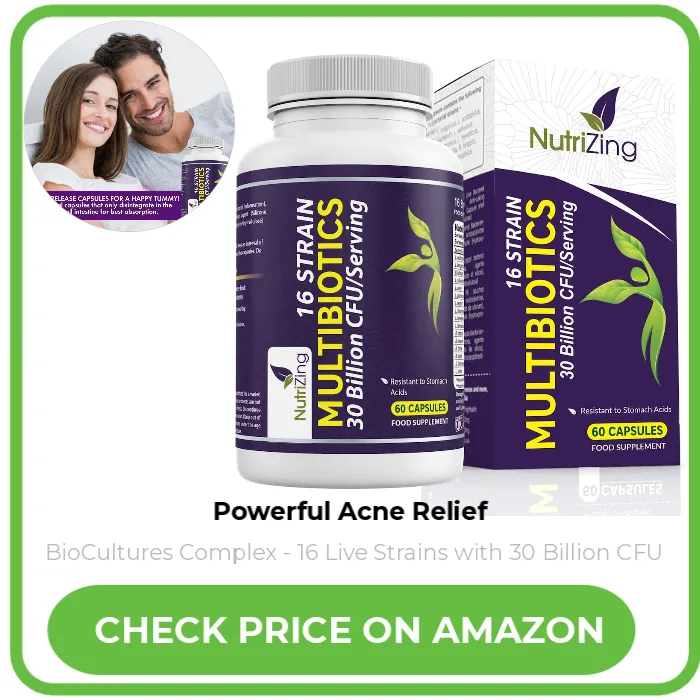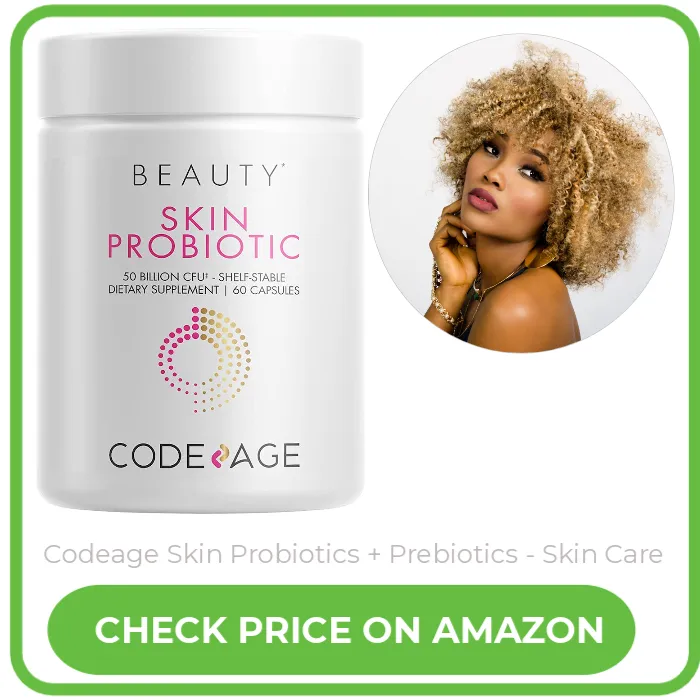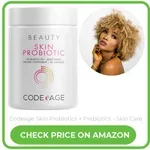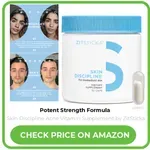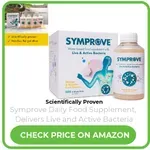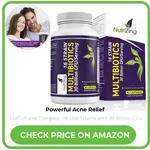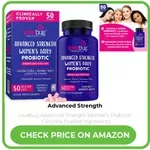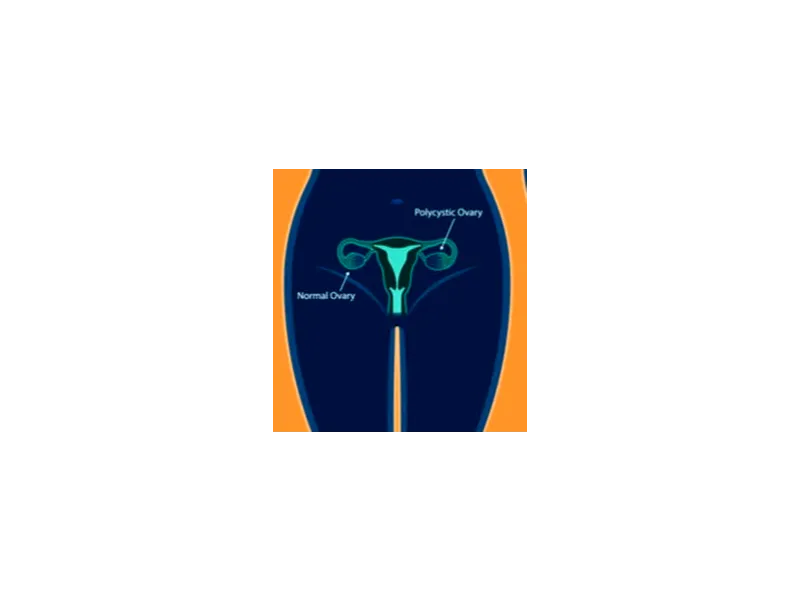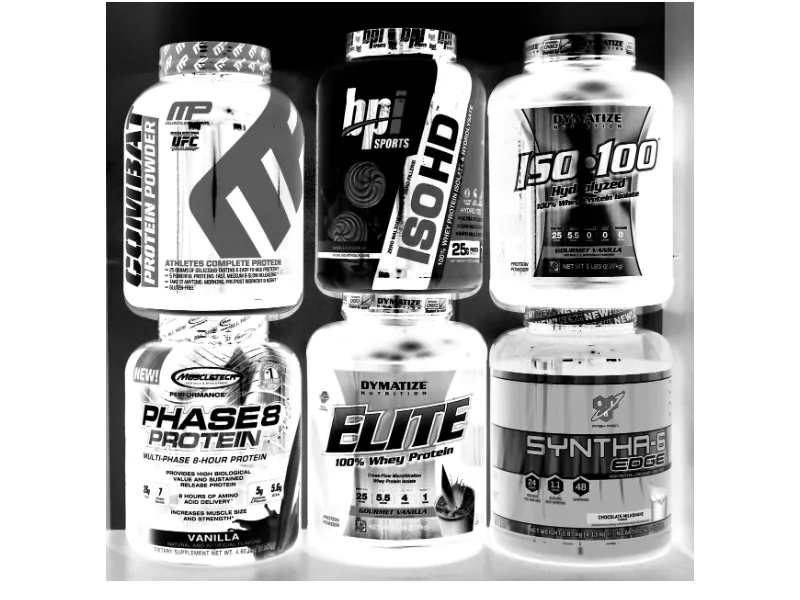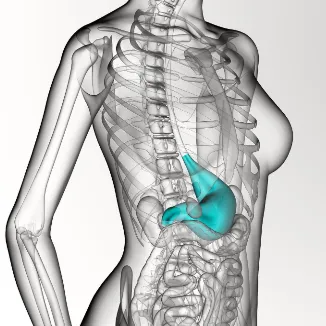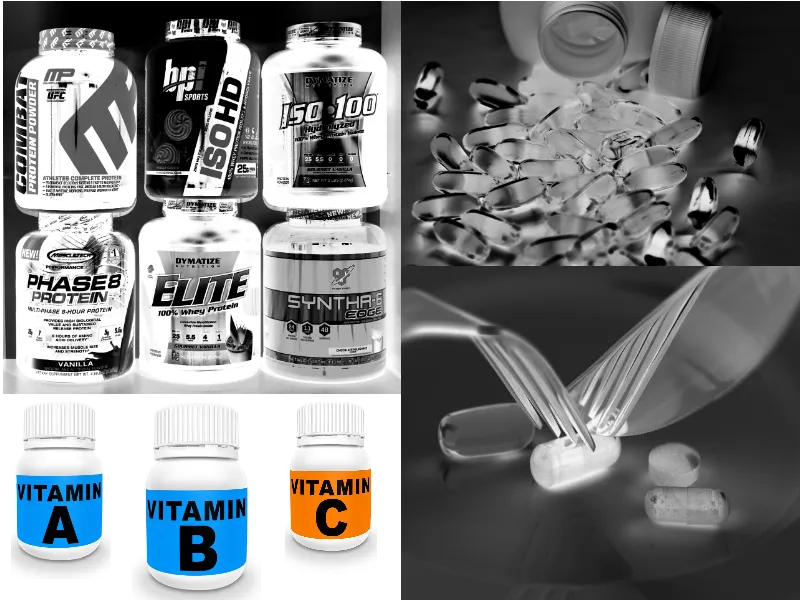Probiotics for Acne
Best Probiotics for Acne
In this article we're going to be talking about the skin benefits of taking a probiotic . They're supplements, gummies drinks, they're naturally present in fermented foods like yogurt sauerkraut.
Probiotics are live microorganisms that, when given in adequate amounts, may have some health benefits, while probiotics are present in fermented foods yogurts sauerkraut kefir, you also will of course find them in supplements and the microorganisms most commonly used are lactobacilli bifidobacterium and enterococcus. A lot of enthusiasm for taking probiotics for a variety of digestive health concerns which exceed the scope of today's article, and i am a no gi expert. Do you know that your gut and your skin? They are intimately connected and disruptions in the natural microflora.
That's the stuff: the live organisms in your gut disruptions in that can disrupt the permeability barrier there and lead to more inflammatory responses when it comes to probiotics. Probably the area of most active research in terms of skin benefit comes from the literature on eczema, otherwise known as atopic dermatitis people with atopic dermatitis. They have evidence of disruption of their gut microbiome that may underscore part of how the disease process begins to unfold. People with eczema have less diverse, intestinal, microflora or bacteria there.
Maybe that leads to a more leaky permeability barrier and that may also reflect the skin barrier defect that goes along with having eczema eczema. If you're not familiar, it's a chronic, inflammatory skin condition. That comes and goes very, very itchy and it is tightly associated with a variety of other healthy health issues. People with eczema have decreased intestinal barrier function and they also have less diverse microflora in their intestine infants, with allergies or atopic dermatitis.
Their stool has fewer amounts of lactobacillus and bifidobacterium in comparison to infants that don't probiotics may help to modulate certain inflammatory responses, starting at the gut. They may help to control and modulate how your immune system reacts to things that it encounters and for people with inflammatory skin conditions like eczema. That is a part of what is skewed and leads to skin issues is kind of a distortion of immune responses.
Probiotics may also help in reducing the adherence of staphylococcus bacteria to the skin. You may have heard of impetigo or staph mrsa bacteria. Well, people with eczema are prone to getting colonized with those bad bacteria, and it's thought that perhaps probiotics may help in reducing adherence of that bacteria.
Helping overall, reduce flares of eczema. Probiotics may also help modulate intestinal barrier function as well as skin barrier function. So this is an area where there's a lot of interest, a lot of research interests interest.
These Top 6 make our Top Selection List:
How we choose:
We've read through & researched countless reviews on Amazon and other Authoritative Sources and Researched Data to find some of the best of the best Probiotics for Acne supplements for immune support.
Why Viridian Clear Skin Complex - 60 Vegicaps
Made Our Best of The Best Top 6 & Why we love it
The only thing better than feeling great on the inside is looking great on the outside. Viridian has found a solution. Clear Skin Complex is an all-natural, clinically proven product that targets acne-prone skin.
It is helpful & reassuring to know
Viridian Clear Skin Complex is a blend of targeted botanicals, key minerals, fat soluble antioxidants, and probiotics. It’s a unique blend of targeted nutrients that have been proven to target skin concerns.
Why Symprove Daily Food Supplement
Made Our Best of The Best Top 6 & Why we love it
Symprove delivers billions of good bacteria to your gut and 9 out of 10 customers feel the difference. It's a unique water-based formula which has proven to outperform other products in its ability to survive stomach acid, thrive and colonise the gut.
It is helpful & reassuring to know
Symprove Water-Based Supplement is made with only water and natural ingredients, so it’s ideal for everyone, including those who are sensitive to gluten and dairy.
Symprove is a water-based supplement that is dairy free, gluten free, suitable for vegans and vegetarians, and FODMAP friendly..
Why Skin Discipline Acne Vitamin Supplement by ZitSticka
Made Our Best of The Best Top 6 & Why we love it
This is an acne-specific formula. It contains ingredients designed to prevent breakouts and clear up those that have already occurred.
It is helpful & reassuring to know
This unique product contains the most powerful ingredients ever created, combined with an extensive blend of probiotics and other skin supporting compounds. It has been proven in clinical trials to reduce skin breakouts and clear up the complexion inside and out.
The perfect skincare for those with sensitive skin. Contains a blend of the most effective skin optimizing nutrients and probiotics, clinically proven to reduce breakouts, regulate sebum production, optimize gastrointestinal climate and microbiome health, enhances skin’s structural proteins, and sweep out bacteria for inside-out detoxification.
DRUG-FREE: SKIN DISCIPLINE is an effective skin care regimen. Many people use it as an alternative to harsh prescription medications.
Why Lovebug Advanced Strength Women’s Probiotic
Made Our Best of The Best Top 6 & Why we love it
It is helpful & reassuring to know
Why Nutrizing BioCultures Complex
Made Our Best of The Best Top 6 & Why we love it
An amazing 16 strains are contained in this multi strain formula. It was made from a 30 billion CFU/serving source. At the Beauty Shortlist & Wellbeing Awards, in March 2020, it won the best gut supplement award.
It is helpful & reassuring to know
Why Codeage Skin Probiotics Made Our Best of The Best Top 6 & Why we love it
- Dietary Supplement
- Soil Based Organisms
- 50 Billion CFU‡
- Skin Prebiotics & Probiotics
- Ayurvedic Herbs
Codeage Skin Probiotic supplement provides 19 strains of probiotics delivering 50 billion CFUs per serving along with vitamin C and botanical herbs.
The product contains a prebiotic blend, a proprietary mix of organic herbs that have been shown to be effective in the skin. Prebiotic Blend Organic Herbs Vitamin C Codeage Skin Probiotic is designed for normal to dry skin. It contains a prebiotic blend, a proprietary mix of organic herbs that have been shown to be effective in the skin. Codeage Skin Probiotic contains 19 strains of probiotics delivering 50 billion CFUs per serving along with vitamin C and botanical herbs.
It is helpful & reassuring to know
Codeage Skin Probiotic contains:
- Probiotics with 50 billion CFUs per serving
- Selection of botanical herbs including camu camu powder, triphala extract, holy basil extract, fenugreek extract, asparagus, mangosteen powder, açaí powder, ginger extract, and rose hips extract
- Prebiotics
- Vitamin C from acerola cherry
- Phytoceramides
- Shelf-stable with no need for refrigeration
- Complements a beauty and clear skin regimen as a skin care supplement support*
- Also offers SBOs probiotics (soil-based organisms)
- Non-GMO and soy-free
- Contains no binders, gluten, milk, egg, wheat, shellfish, additives, or preservatives
- Third-party tested
- Manufactured in the USA in a cGMP-certified facility
- Codeage Skin Probiotic can be used by women and men
Knowledge Base
Probiotic
Probiotics for Acne
Best Probiotic for Acne
Take Probiotics
Taking Probiotics for Acne
Skin Health
Probiotics Help
Help With Acne
Probiotics Help With Acne
Probiotic
Probiotics for Acne
Best Probiotic for Acne
Probiotics Help
Causes Acne
Healthy Skin
Topical Probiotic
Benefits of Probiotics for Acne
Products with Probiotics
Health Affect
Skin Condition
Gut Health
Strain
Skin Health
Microbiome
Treat Acne
Breakout
Take Probiotics
Antibiotic
Probiotic Strains
Probiotic Supplement
Help with Acne
Probiotics Help with Acne
Skin Microbiome
Clear Skin
Acne Treatment
Effects of Probiotics
- Probiotics are live microorganisms that are similar to the beneficial microorganisms found in the human gut.
- Some people use probiotics for acne to try to improve their skin health.
- The best probiotic for acne may vary depending on an individual's specific needs and preferences.
- Topical probiotics are applied directly to the skin and are sometimes used to treat acne or other skin conditions.
- A skin condition is a problem that affects the appearance or health of the skin.
- Gut health refers to the overall health of the digestive system and the balance of microorganisms that live in the gut.
- Inflammation is the body's response to injury or infection, characterized by swelling, redness, heat, and pain.
- A strain is a specific type or subtype of a microorganism, such as a bacteria or yeast.
- Skin health refers to the overall health and appearance of the skin.
- The microbiome is the collection of microorganisms that live in and on the human body.
- There are various treatments available for acne, including topical and oral medications, lifestyle changes, and home remedies.
- Some people believe that probiotics may help to treat acne by regulating the balance of microorganisms on the skin and reducing inflammation.
- A breakout is a sudden occurrence of acne or other skin problems.
- People can take probiotics by consuming fermented foods or by taking a probiotic supplement.
- It is thought that probiotics may be able to help with certain health conditions, including acne, by restoring balance to the gut microbiome and reducing inflammation.
- Inflammatory refers to conditions or processes that involve inflammation.
- Antibiotics are medications that kill or inhibit the growth of bacteria.
- Dermatology is the branch of medicine that deals with the skin, hair, and nails.
- Digestive refers to the process of digestion and the organs involved in this process, such as the stomach and intestines.
- Hormonal refers to hormones and the effects they have on the body.
- Probiotic strains are specific types of probiotics that have been identified and named according to their characteristics.
- Acne breakouts can be sudden and unpredictable, or they may occur in a more predictable pattern.
- Some people try to reduce acne by using acne-fighting skincare products or making lifestyle changes.
- Acne is often associated with hormonal changes, poor diet, and certain medications.
- It is thought that probiotics may be able to help with certain health conditions, including acne, by restoring balance to the gut microbiome and reducing inflammation.
- Acne and rosacea are two common skin conditions that can cause redness, bumps, and other skin problems.
- The skin barrier is a layer of cells and lipids that helps to protect the skin from external stressors and maintain hydration.
- Gut bacteria are the microorganisms that live in the digestive system.
- Inflammatory skin conditions are skin conditions that involve inflammation, such as acne and eczema.
- Skin care refers to the various practices and products used to maintain the health and appearance of the skin.
- The relationship between health and acne is complex, with both internal and external factors potentially contributing to the development and severity of acne.
- Yogurt is a fermented food that is sometimes consumed for its probiotic content.
- Bad bacteria are microorganisms that can cause illness or other negative effects on the body.
- People with acne may have an imbalance of microorganisms on the skin or an underlying medical condition that contributes to the development of acne.
- Some people take probiotics for acne in the hope that they will help to reduce the severity of acne breakouts.
- The use of probiotics for acne is not well-established, and more research is needed to determine their effectiveness in treating this condition.
- Acne vulgaris is a common type of acne that typically affects the face, chest, and back.
- A healthy skin microbiome is thought to be important for maintaining overall skin health and preventing the development of skin problems.
- Clear skin is skin that is free from acne, other blemishes, and other skin problems.
- There may be benefits of probiotics for acne, but more research is needed to fully understand their potential role in the treatment of this condition.
- Skin care products that contain probiotics are sometimes used to improve skin health and reduce the severity of acne and other skin conditions.
- The severity of acne can vary widely, from mild cases with just a few pimples to severe cases with numerous pimples and cysts.
- It is not clear whether probiotics work to treat acne, as the evidence is mixed and more research is needed.
- Some people believe that probiotics may be able to help with acne by regulating the balance of microorganisms on the skin and reducing inflammation.
- The best oral and topical probiotics for acne may vary depending on an individual's specific needs and preferences.
- Acne is a common skin condition that can affect people of all ages and can be caused by a variety of factors.
- Acne treatment may involve a combination of different approaches, including topical and oral medications, lifestyle changes, and home remedies.
- Probiotics can also be found in certain skin care products, such as moisturizers and cleansers.
- Improved gut health may be associated with improved skin health, as the gut and skin are interconnected.
- The bacteria in the gut play a crucial role in maintaining overall health, including skin health.
- There are many different types of probiotics, including bacteria and yeast, and each type may have different effects on the body.
- The overall health of an individual can affect the health of their skin, as poor overall health can lead to skin problems.
- Different strains of probiotics may have different effects on the body, depending on their characteristics and the specific health condition being treated.
- The effects of probiotics on health are not fully understood and more research is needed to determine their potential benefits and risks.
- Identifying the root cause of your acne may be important for finding an effective treatment approach.
- Using probiotics for acne or other skin conditions may be one approach to improving skin health and reducing inflammation.
- The skin health and acne reduction benefits of probiotics are not well-established, and more research is needed to understand their potential role in the treatment of acne.
- Some people believe that probiotics may worsen acne, while others believe they may be helpful in improving skin health.
- The gut lining is a layer of cells that lines the digestive system and helps to protect it from harmful substances and microorganisms.
- The gut and skin are interconnected, with the health of the gut potentially affecting the health of the skin and vice versa.
- People with sensitive skin may be more prone to irritation and other skin problems, and may need to be more cautious when using certain skin care products.
- Acne is an inflammatory skin condition that can cause redness, bumps, and other skin problems.
- Some people believe that probiotics may help acne by regulating the balance of microorganisms on the skin and reducing inflammation.
- Probiotics are live microorganisms that are similar to the beneficial microorganisms found in the human gut and are sometimes consumed for their potential health benefits.
- Probiotics are found in fermented foods such as yogurt and sauerkraut, and can also be taken as a supplement.
- A probiotic that contains a specific strain or combination of strains may be more effective for certain health conditions.
- The use of probiotics for acne and other inflammatory skin conditions is not well-established, and more research is needed to understand their potential role in treatment.
- Probiotics are often implicated in the treatment of inflammatory skin conditions like acne and eczema, but more research is needed to determine their effectiveness.
- Topical skin care products that contain probiotics, such as moisturizers and cleansers, may be used to improve skin health and reduce inflammation.
- The treatment of acne and rosacea may involve a combination of different approaches, including medications, lifestyle changes, and home remedies.
- Some people use probiotics to help with acne and other skin conditions, but more research is needed to understand their potential role in treatment.
- Probiotics are bacteria and yeast that are similar to the beneficial microorganisms found in the human gut, and are sometimes consumed for their potential health benefits.
- The results of using probiotics for acne may vary and are not well-established, as more research is needed to understand their potential role in treatment.
- Probiotics can improve gut health by restoring balance to the microbiome and reducing inflammation, and some people believe that improved gut health may also improve skin health.
- Inflammatory skin conditions like acne and eczema are characterized by inflammation and can cause redness, bumps, and other skin problems.
- The use of probiotics for the treatment of chronic skin conditions like acne and eczema is not well-established, and more research is needed to understand their potential role.
- There are various approaches to treating acne, including medications, lifestyle changes, and home remedies, and it may be necessary to try different approaches to find what works best for you.
- Improving your overall health may also improve your skin health, as poor overall health can lead to skin problems.
- By increasing the balance of beneficial microorganisms in the gut, probiotics may help to improve overall health and prevent certain health conditions.
- Probiotics may help with acne by helping to regulate the balance of microorganisms on the skin and reduce inflammation.
- Improved skin health may be associated with improved overall health, as the skin is an important organ that plays a role in protecting the body from external stressors.
- The relationship between health and acne is complex, with both internal and external factors potentially contributing to the development and severity of acne.
- Fermented foods, such as yogurt and sauerkraut, are a natural source of probiotics and may be beneficial for gut and overall health.
- A probiotic supplement is a product that contains concentrated amounts of live probiotics and is taken orally.
- Some people take probiotics for acne in the hope that they will help to improve their skin health and reduce the severity of acne breakouts.
- It is not clear whether taking probiotics for acne is effective, as more research is needed to understand their potential role in treatment.
- Acne can be caused by a variety of factors, including hormonal changes, genetics, certain medications, and certain skin care products. It can also be triggered by stress, diet, and certain lifestyle factors.
- Probiotics may help with acne by reducing inflammation in the skin and regulating the balance of microorganisms on the skin.
- Acne-prone skin is skin that is more susceptible to developing acne, which is an inflammatory skin condition characterized by redness, bumps, and other skin problems.
- Some people try to reduce acne by using acne-fighting skincare products or making lifestyle changes, such as eating a healthy diet and avoiding stress.
- Reducing inflammation in the skin may be important for improving skin health and reducing the severity of acne and other skin conditions.
- Acne-causing bacteria, such as Propionibacterium acnes, may contribute to the development of acne by triggering inflammation in the skin.
- Some people believe that probiotics may help to reduce acne by regulating the balance of microorganisms on the skin and reducing inflammation.
There are studies that demonstrate a benefit preventatively for taking probiotics to prevent eczema. Some dermatologists are keen on recommending probiotics, perhaps for preventing eczema, and it started in the last two weeks of pregnancy and continued for the first three months of life, and there are research uh. You know there are studies actually showing that that may have a the ability to reduce the incidence of eczema and at risk risk groups. Unfortunately, these studies are pretty small, they have limitations and they don't look at the long-term ramifications.
As far as treating eczema, however, we don't really have good data showing benefit to treating eczema with a probiotic. Now more research is needed because the studies that we have they have many limitations, they're small, maybe underpowered and maybe not having enough diversity. And when you say probiotics, that's actually a pretty big category.
There are a lot of different bacteria that could be included in that dosage dosage frequency and different strains. There'S actually, research to suggest that it's not even just the species of bacteria, it's actually the strain that can alter the type of immune response, and because these studies, you know they're using different strains, it's really hard to draw meaningful conclusions that are generalizable to either treating
A specific condition like eczema or to the population as a whole in terms of skin benefit there's a lot of demand for research on probiotics. It'S not you know, they're relatively readily available, either from fermented foods or from supplements. So because of that you know there are meta analyses which kind of look at all the studies.
Unfortunately, the meta analyses are met with so many small unpowered studies that it's difficult really to to make meaningful conclusions. So it's really difficult to say for sure that probiotics are going to be helpful for a skin condition like eczema. You know it's also compelling to think about probiotics for people with acne, because acne is an inflammatory condition like eczema people with acne.
They do have actually evidence of a gut dysbiosis, meaning the bacteria that colonize, the gut and people with acne may be different, and that may relate to flares of the acne, probably because of inflammation and there's research, to suggest that these probiotics that can help modulate inflammatory Responses, so it's compelling to think that it might be beneficial for acne and, let's not ignore the role of stress in our gut microbiome and our skin and with acne stress, is a well-known trigger for an acne flare and with stress, can impact the gut microbiome making
For more of an inflammatory outcome, encouraging bacterial overgrowth and stagnating intestinal transit time, we already know that people with acne do have a higher association with constipation, like they have they're more likely to deal with constipation, and so there is.
You know it's in compelling to think that probiotics may help currently the research that we have on probiotics for acne small, small studies again with many limitations, but they do demonstrate uh up to 84 improvement in acne with probiotic supplementation, specifically with lactobacillus yeah, that's kind of Where the research lies as far as probiotics for specific skin conditions, there's some other smaller studies.
Looking at you know, other skin issues, things like uh wound healing that you know suggest perhaps a benefit, but by and large we really don't have a lot of good rigorous research on probiotics for treating or preventing any skin condition, eczema being the skin condition where we Have the most research and even there we're kind of left without answers as to whether or not this is going to be a good recommendation for people with eczema or unnecessary?
But where does that leave you? Maybe you don't have eczema or acne you're, just wondering like? Should you take a probiotic for your skin as it stands now, it's compelling, but again we just don't have sufficient research to support doing that. Is it harmful unlikely? I mean uh probiotics.
They are thought to be safe for otherwise healthy people. Now, if you go through the literature on probiotics some of the trials looking at other diseases outside of the skin, there are some risks that pop up and some adverse outcomes that pop up that do beg. The question are probiotics safe for people who may have severe underlying medical conditions.
For example, one study looking at probiotics for people who had what's called acute pancreatitis, basically sudden onset of inflammation in the pancreas, can be triggered by things like alcohol anyways. In that study, there was an increase in overall death in people getting probiotics for acute pancreatitis in comparison to those not getting probiotics yeah the more the the death in the probiotic group was 16 versus, like six percent in the uh control group, and so for that Reason that study was actually halted prematurely, infants in the pediatric intensive care unit, and there was a 1.1 rate of bloodstream infections with the probiotic meaning the probiotic that the infants were given in this trial actually got.
You know, through the gut into the bloodstream and caused severe infection. These things are pretty rare, but they do occur in these trial and in the setting of these trials, and it does give everyone pause to just go recommending them for people who may be like immunocompromised. For example, somebody who doesn't have a good you know healthy immune system, maybe because they have cancer or a chronic medical illness. By and large, though probiotics for otherwise healthy people, they are safe.
Although these studies on you know certain groups with underlying medical issues, do highlight some potential risks that maybe give us pause for just recommending them to people who may be immunocompromised or chronically ill, but for otherwise healthy people they do have a pretty long trip, long-standing track Record of safety. That being said, when it comes to probiotics, they are supplements, they're, not regulated, so supplement companies don't necessarily have to demonstrate purity of the ingredients. That is why, when you select a supplement, i always recommend selecting one that is nsf certified.
That kind of means that at least what they say on the label is what is actually in the product, especially when we're talking about probiotics, make sure that it actually has the bacteria in there that you think you're getting. So it can be really hard to know for sure what supplement is the best?
My recommendation, if you are going to try a probiotic talk to your health care provider, first, to make sure that it's going to be right, for you ask them to suggest some and again, when you're choosing supplements look for those that are nsf certified, because this does Kind of help you at least have some level of confidence that what is on the label is what you are actually consuming, but pretty much anything i could tell you about potential benefits to your skin from taking a probiotic would really just be speculation at this point. More research definitely is needed. Hopefully we will get that in the future, because it is a really exciting avenue of research.
As mentioned in my original acne story, article probiotics made a huge difference in helping me to clear my skin from this to this in just six weeks, but how? Why do they make such a difference which probiotics are best and how they different to prebiotics?
All that and more in today's article I can hear hello and welcome I'm Madison don't and I'm a science graduate biology teacher and a tripathi student who created this channel to help you get smart about your body in today's article we're going to go over the difference Between probiotics and prebiotics, everyday sources of probiotics and prebiotics supplements, you need to be weary of, and also the brand of, probiotic supplements that I choose to take every day.
So what are probiotics? Well, they're tiny microorganisms such as bacteria that we ingest, either through diet or through supplementation that are considered good bacteria because they help with our gut and overall health gut health is on the forefront of health research at the moment. So we don't know everything about it. Yet, but what we do know is that poor gut health is associated with a huge number of diseases and ill health.
In fact, several studies have shown the number of bacterial cells in the body to actually outnumber the number of human cells that we have. Previous research used to think that this was a ratio of ten to one ten being bacterial cells for every one human cell. But recent studies show that it's more like 1.
3 to one. So it's very similar, but there are slightly more bacteria. Just take a look at your arm for a second, so on our skin and in our digestive system are millions and millions of good and bad bacteria. Now the bad bacteria is not usually an issue unless it outweighs the good bacteria or unless it enters the body.
Everything that passes through your digestive system is actually on the outside of your body, so excuse my terrible drawing, but this is the inside of your body where all your organs are and the digestive system from the top to the bottom is actually outside of your body. So it's only the vital nutrients, vitamins, minerals and water, the things that your body actually needs that get invited through the intestinal lining and into the bloodstream. On the other side, the rest.
Well, you know inflammation and gaps in the intestinal wall, also known as leaky gut, which I will have to go through in a different article cause issues, because bad bacteria is no longer contained in the intestines, but makes it through into the bloodstream causing more inflammation. And the bad bacteria on our skin is not a problem of either that is until it gets trapped in the pores by sebum or enters the bloodstream through broken skin, but back to the good guys. So probiotics are the actual organisms. They'Re.
The good bacteria strains, whereas prebiotics are the foods that the good bacteria need in order to fuel their activity and reproduce again, keeping the balance of good and bad bacteria in check. Well, bad bacteria, really love feeding on refined sugar and other bad foods. Good bacteria really love fiber. In fact, when you eat fiber, the human body cannot actually digest and absorb it.
So it ends up going down to feed the good bacteria in your large intestines good prebiotic foods include vegetables such as onion and garlic, beetroot, chicory root, asparagus and leek, and also a few legumes, whole grains, nuts and fruits probiotics. On the other hand, such as those actually, including the good little organisms, include mostly fermented foods such as kombucha, kefir, sauerkraut, kimchi, yogurt, and also some fermented cheeses, such as Gouda. However, you do have to be careful with a lot of these, because things such as kombucha and yogurt can actually have a lot of added unnecessary sugar. That is purely just there to make the flavor a little bit more bearable to the general public.
So kombucha actually does need a little bit of sugar to help the fermentation process, but sometimes they do put in a lot more than they need because they're trying to give the consumers that extra flavor so that they actually enjoy it and keep on buying it.
So, just as a little guide, if sugar is one of the first three ingredients, then it's probably not a good one to pick, but also, if you want to have a look at the nutritional panel, if you go to the per 100 mil, you should only choose Ones that have one to two grams of sugar per 100 mil if there are 4 grams per 100 mil, then that is really not a good one. Now the difference of a gram probably doesn't sound like much, but often we aren't buying 100 mil bottles, we're buying 500 mil bottles, so that could be the difference between 5 grams of sugar or 25 grams of sugar. So it is really important to check that, but, depending on the serving size of the bottle that you pick up,
it can be a lot easier to just compare the 100 mil column so make sure that you look for only one or two grams of sugar and If your dairy-free or scared of fermented foods, it might make sense for you to take a supplement like I do, but it is important to note that not all probiotics supplements are created equal.
You want to make sure that one, the probiotic strains of bacteria that you've got actually going to be effective, so they're scientifically proven to have a positive effect. And the second thing that you want to make sure of is that your capsules are actually going to be able to withstand the acidity of the stomach.
So the last thing that you want is for the capsules to erode and dissolve in the stomach, which means that the acidity is going to kill the bacteria and that they're not going to make it to the intestines which is going to waste your money. Because they're going to be dead to make sure that the supplements are going to be able to withstand the acidity in the stomach and also the bile of the small intestine.
You want to look for things that say acid and bile resistant, which is one of the reasons why I chose the life spaceboards broad-spectrum probiotic, also because the strains of this one are really good and they have been scientifically proven effective if you've learnt anything new from This article today, then, please make sure to hit that like button below and throw me a comment, letting me know of your takeaways also,
if you've decided to do anything different or pick anything the same, maybe you're already taking probiotics but haven't checked if they were after The bio or resistant - or maybe you just didn't, really know why you were taking them anyway.
FAQ
Are probiotics good for cystic acne?
Probiotics are considered by many to be beneficial to people who suffer from cystic acne. Probiotics are beneficial because they improve the body’s natural defenses against harmful bacteria and they make the skin healthy and clear. Probiotics are often recommended by naturopathic doctors and nutritionists as part of a holistic approach to healing acne. Probiotic supplements can be purchased at health food stores and online.
Why are probiotics good for acne?
Probiotics are beneficial for various health issues including acne. According to research, one study showed that acne patients who consumed probiotics and Bifidobacterium had fewer breakouts. It was found that people who consumed probiotic supplements had fewer inflammatory reactions and more of them experienced fewer breakouts than those who did not. The researchers suggest that probiotics might have reduced the number of acne-causing bacteria in the skin.
Probiotics are microorganisms that are found naturally in the human body. They help fight against the bad bacteria and maintain a healthy immune system. Scientists have found that probiotics reduce the chances of getting an infection from the bacteria that cause acne. In fact, one study found that acne patients who took a probiotic supplement for three months had fewer breakouts than those who did not use it.
Although the research has not fully explained the reason why probiotics help prevent acne, some scientists think it may have something to do with reducing the levels of hydrogen peroxide and ammonia in the blood. Hydrogen peroxide and ammonia are substances produced by the body that can damage skin cells. Probiotics may also improve the skin barrier function.
What's the best probiotic for acne?
Probiotics are great for acne and other skin problems. They help regulate the immune system and stimulate the growth of the skin. They are also essential to support the body’s natural defense mechanisms. A daily dose of probiotics can help improve the condition of the skin, prevent the breakout cycle and help heal wounds on the skin.
Probiotics are live bacteria and yeast that provide health benefits when taken in adequate amounts. In the human body, they help to maintain a healthy immune system, fight infections, and promote digestion. Probiotics can be found in foods like yogurt, kimchi, sauerkraut, miso, kefir, and tempeh.
These are all foods that people tend to eat more often. They are beneficial for both adults and kids, and there are different strains for each group. For adults, the most popular are Lactobacillus acidophilus and Bifidobacterium longum. The second most common are Saccharomyces boulardii, Streptococcus thermophilus, Lactobacillus delbrueckii subsp. bulgaricus, and Lactobacillus helveticus. Kids are usually prescribed Lactobacillus rhamnosus GG (LGG), Lactobacillus reuteri, Lactobacillus paracasei, Lactobacillus casei, and Pediococcus pentosaceus.
When you have acne, it’s very difficult to sleep at night. If you suffer from acne, you may want to try different kinds of probiotics. Probiotics are beneficial microorganisms that reside in your gut. When you consume a probiotic supplement, you add them to your diet. It is best if you start by taking them three days in a row, and then continue to take them daily until your symptoms subside.
Are probiotics good for acne?
Probiotics are very helpful in dealing with acne. It helps your body to maintain a healthy balance of bacteria. A healthy microbiome is essential for your body to stay healthy and function properly. It plays a very important role in healing and maintaining a healthy digestive system. Probiotics are natural anti-bacterial agents and help your body to regulate the immune system. Your immune system plays a key role in fighting infections. If it is suppressed, your body becomes susceptible to all kinds of diseases. Probiotics are an excellent option if you want to deal with acne.
Probiotics are helpful to people who suffer from acne. Probiotics help in two ways. The first is that they help to regulate the amount of toxins in your body. Toxins cause acne. By helping your body to regulate its amount of toxins, your skin can heal itself. Second, probiotics can make your skin more resistant to infection. In cases where your immune system is compromised and you cannot fight infections, probiotics can help you.
What are the best probiotics for acne?
Probiotics are essential for the proper functioning of your body. They help you digest food properly and provide nutrients to your body. Probiotics also prevent the growth of pathogenic bacteria that cause skin problems such as acne. A daily dose of fermented foods, including sauerkraut, kimchi, kefir, miso, and kombucha, is an excellent way to get a healthy gut. This will help balance your microbiome.
You can also use probiotic supplements or eat probiotic-rich foods such as nuts, bananas, avocados, yogurt, and kefir.The present invention relates generally to a method and apparatus for detecting the position of a movable object, such as a tool, and more particularly to a method and apparatus for detecting the position of a movable object with respect to a workpiece during a machining operation.
Do probiotics help get rid of acne?
Probiotics are bacteria found in our digestive tract, but most people do not have them. Probiotics are one of the most powerful ways to prevent acne. They can help heal and restore your skin to normal and prevent further outbreaks. There are a number of studies showing that taking probiotics reduces the risk of getting acne. Probiotics can even help with scars caused by acne.
Probiotics are bacteria that live in our bodies and help digestion. They also help keep us healthy. They play a role in keeping the balance of the good bacteria, which helps keep us healthy. However, one of the reasons why people develop acne is because they do not have enough probiotic bacteria in their digestive tract. When people start taking probiotics, they notice that their skin is looking much better. Probiotics are one of the most beneficial foods you can eat. They help us digest the foods we eat, and they prevent the bad bacteria from growing in the digestive tract. If you suffer from acne, then make sure you incorporate probiotics into your diet. Probiotics are great, and they can really help your skin.
Are probiotics good for fungal acne?
Yes, probiotics can be effective in treating fungal acne. Probiotic supplements contain Lactobacillus and Streptococcus bacteria, which have a strong anti-fungal activity. These organisms are the most effective in eliminating fungal infections, especially Candida albicans and Malassezia.
Is probiotics good for acne?
Probiotics are not good for acne, and this is because bacteria (bacteria) are not good for acne. Probiotics are a type of bacteria that are normally found in the human intestine. They help maintain the balance of bacteria in your gut. It is also believed that they help prevent infections and diarrhea.
Some companies sell probiotic supplements that claim to improve skin health. But if you look at the scientific literature, you will find that there are no studies proving that probiotics can prevent or treat acne. In fact, there is a study that suggests that probiotics are actually detrimental to acne. This is because probiotics can cause bloating and inflammation in the intestines, which leads to blocked pores and eventually acne. So, the answer to this question is “no.”
Best probiotics for acne rosacea?
Acne rosacea is a chronic skin disease that causes red, flaky and irritated skin. It usually begins as small bumps called papules and pimples and gradually spreads to larger areas of the face and neck. In mild cases, acne rosacea may clear up on its own within a few months. If the symptoms persist, you may need to see a dermatologist.
Rosacea is linked to an unhealthy balance of bacteria on your skin. Probiotics are natural gut-friendly bacteria that work to support a healthy immune system and provide some of the “good” bacteria that live in the digestive tract. Probiotics are available in different forms such as supplements and even yogurt. There is no direct evidence that probiotics are linked to acne rosacea, however they may help in reducing inflammation and promoting the health of the skin microbiome.
Does probiotics help with pimples?
Probiotics help your body deal with acne. They make sure you have the right bacteria on the skin and they stop the growth of bad bacteria that causes pimples and acne. They also regulate the pH level of your skin.
Can probiotics worsen acne?
Probiotics can be used in combination with a healthy lifestyle and proper nutrition to control acne. Some people who are prone to breakouts may benefit from a diet rich in fiber. You may also try to incorporate fermented foods into your diet to help lower stress levels. Probiotics are helpful in restoring balance in the gut microbiome, which in turn helps fight acne.
Can taking probiotics clear acne?
Yes, taking probiotic supplements can be an effective treatment for acne. It is recommended that you eat yogurt containing Lactobacillus acidophilus and Bifidobacterium bifidum, which are two types of beneficial bacteria.
These probiotic bacteria work together to make sure you get a healthy balance of microbes in your digestive tract. Probiotics are thought to be beneficial for your skin, too. These microorganisms can regulate the balance of bacteria in your gut and help you to maintain healthy digestion.
One study showed that probiotics can decrease levels of TNF-alpha, a chemical that increases inflammation. TNF-alpha plays a role in causing acne. According to another study, probiotics also stimulate your body’s production of substances that fight infection.
Do probiotics really work to reduce acne?
Yes, this is one of the best ways to deal with acne. Probiotic supplements contain beneficial bacteria that will help cleanse your system and kill the bacteria that cause acne. Probiotics are natural food sources like kefir or yogurt.
You can add them to your diet daily. There are different brands of probiotics available on the market, but the most effective ones contain the best strain of the bacteria. Some studies have also shown that taking probiotics daily for six months can reduce the number of pimples.
Probiotics are essential for health and well-being. According to science, certain bacteria have been proven to positively impact one’s digestion, immune system, skin, and overall well-being. Probiotic foods such as yogurt, kefir, sauerkraut, and miso are easy to prepare and are a great way to introduce probiotics into your diet.
When you make your own probiotic snacks, you can control the quality of the ingredients, and add probiotics into your daily meals. Probiotic supplements such as Probi-Flora and Florastor are convenient for taking because they come in the form of powders that you can mix with water. If you want to see how taking probiotics can change your life, it is important to start by making a lifestyle change. Avoiding caffeine, sugar, and alcohol and taking a daily multivitamin will help you get started on a healthy path.
What causes acne and spots?
A number of studies indicate that taking probiotic supplements daily may help prevent skin breakouts. This is a fairly recent finding. Before this was discovered, the recommendation was to wash your face more frequently and use less oil to treat pimples. Probiotics are bacteria that live in the intestine and help digest food. There are trillions of these bacteria in our gut.
These bacteria produce chemicals that can reduce inflammation in the body. So, the idea is to encourage the growth of these bacteria to keep your system healthy and prevent the breakouts. Probiotics can be used to treat diarrhea and ulcers, but now they’re used to prevent and treat skin problems such as acne. Some studies have shown that taking probiotic pills twice a day for a month can clear up 90% of acne and leave the skin glowing.
We hope you found this information helpful and that it will help you get the results that you sincerely seek. All you have to do now is just press the BUTTON BELOW to check the price on the best option for you , do that now.
Thank’s for stopping by. Don’t forget to Book Mark us, to easily find us again. We hope to see you soon.

